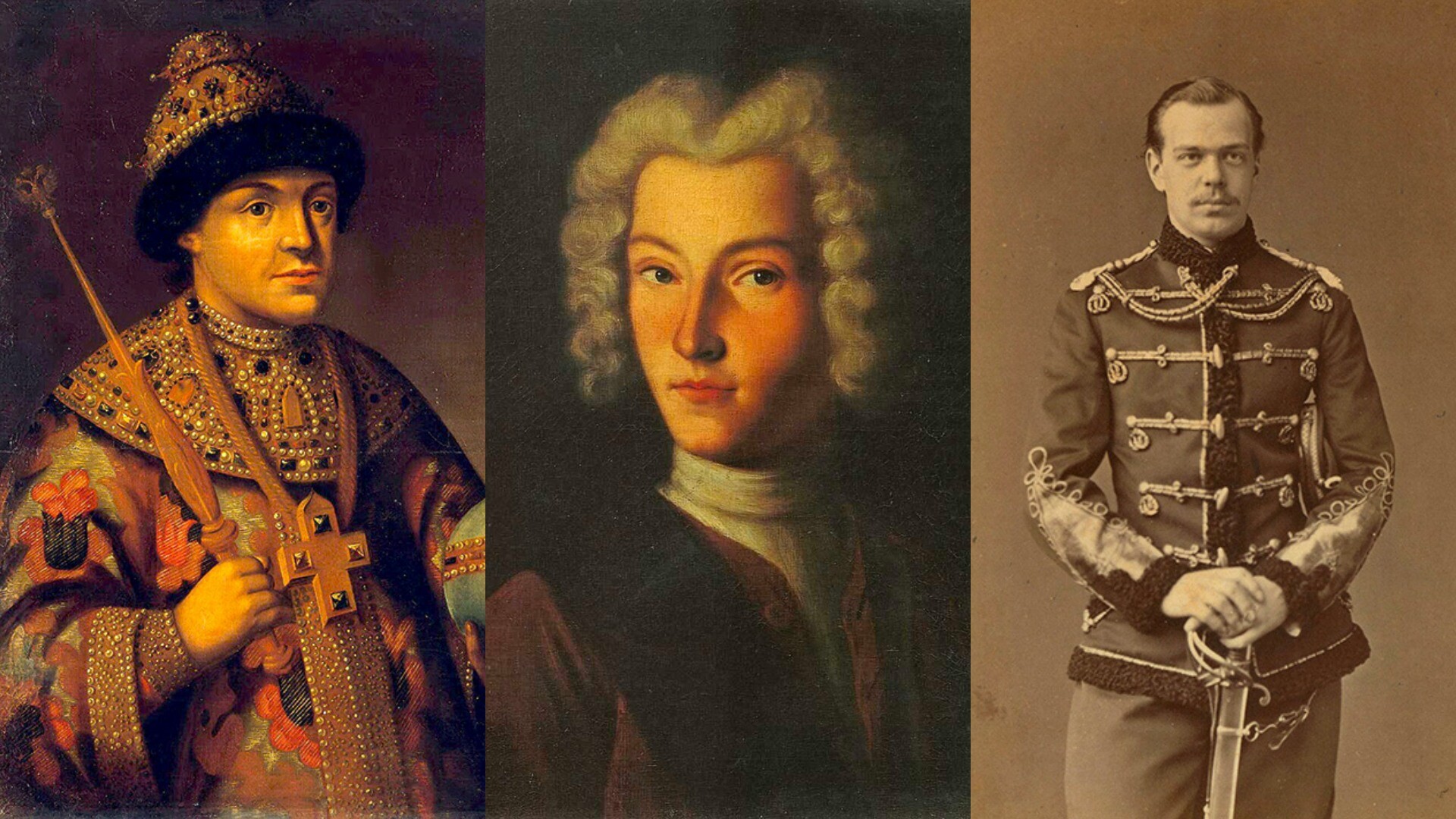
Mikhail Fedorovich, the founder of the Romanov dynasty, was happily married only on his third attempt. His first fiancée Maria Khlopova was disliked by her future mother-in-law. Adversaries rapidly appeared and pronounced the maiden “weak in health”, so she was exiled to Siberia. Maria Dolgorukova, the first legal wife of the tsar, meanwhile, died six months after their wedding. At the age of 30, the tsar got married for the second time – to Evdokia Streshneva.
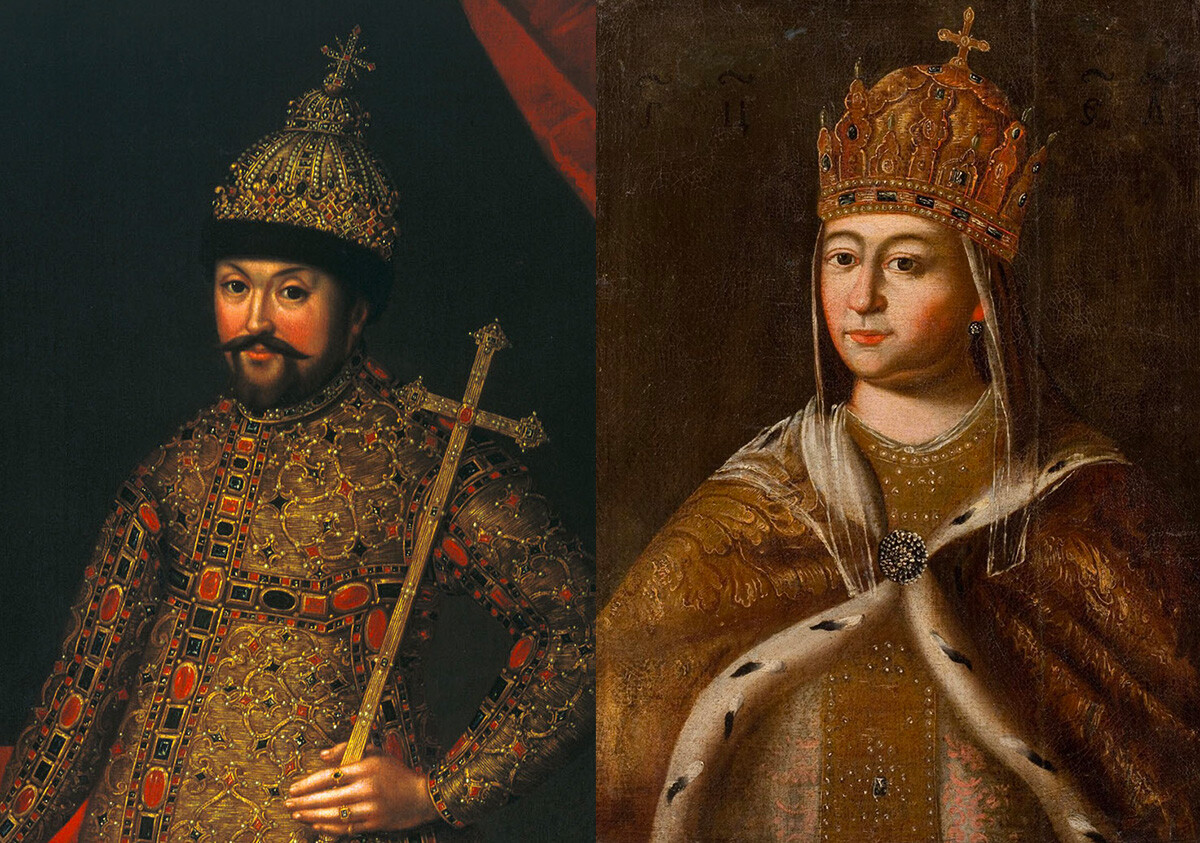
Over the 19 years of a happy marriage, they had 10 children. There is zero information about Mikhail’s mistresses in history - which is why most historians agree that he, most likely, the devout monarch never had any.
Michael’s son Alexei Mikhailovich also had two marriages - and 16 children from two wives!

According to the author of the book ‘Mistresses on the Russian throne’ Irina Voskresenskaya, the devout monarch “did not have enough time or opportunities for such pampering”.
Three sons of Alexei Mikhailovich became tsars. The eldest, Fyodor Alekseevich, ascended the throne at the age of 15, but died at the age of 20. Despite his young age, he ruled alone, without regents and mistresses and made independent political decisions.
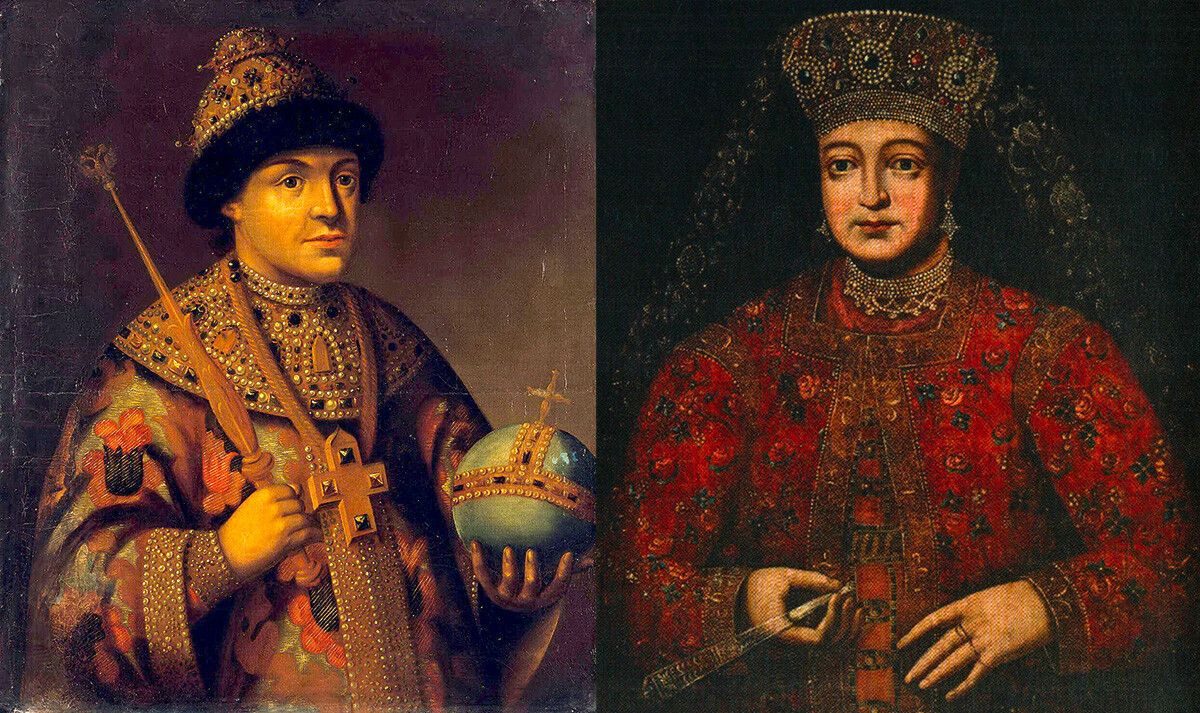
His first marriage at the age of 18 was to Agafya Grushetskaya out of great love, but, a year later, he was widowed: his wife and newborn son died almost immediately after childbirth. His second marriage was at the age of 20, two months prior to his death. Fyodor loved his first wife so much that, according to historian Vasily Tatishchev, his second wife Marfa Apraksina remained a virgin widow.
“This tsarina, as many trustworthy asserted, remained a virgin and passed away in 1715,” wrote Tatishchev.
After the death of Fyodor Alekseevich, his younger brothers Ivan and Peter (the future Emperor Peter I) became co-emperors and their sister Sophia was appointed as their regent. Ivan V, however, was weak in health. According to some versions he suffered from epilepsy.
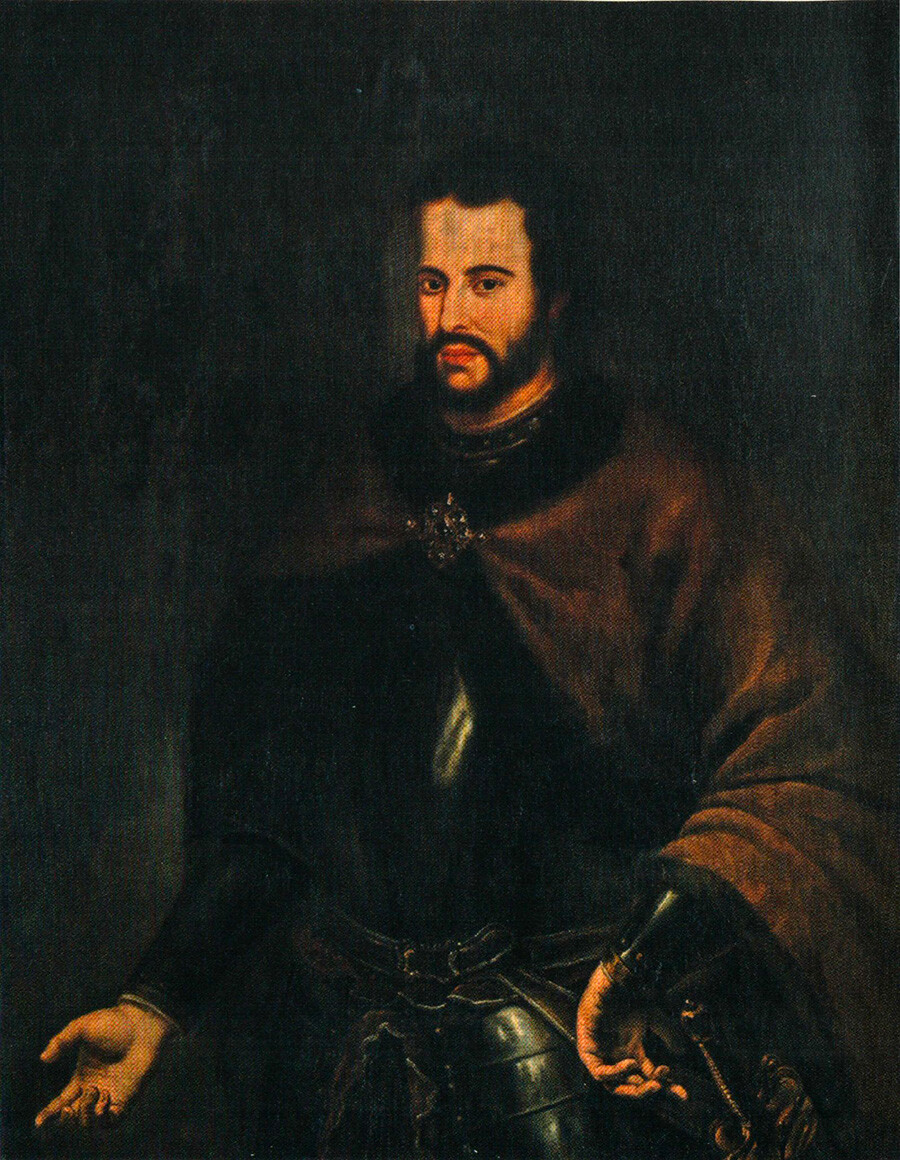
At the age of 18, he was married to Praskovya Saltykova and she gave birth to five daughters. Ivan treated his wife with respect and reverence. He died blind and paralyzed at the age of 30. As for Peter the Great (1672-1725), unlike his devout relatives, he had many extramarital affairs.
Peter I’s grandson, Emperor Peter II, did not even have time to marry: he ascended the throne at the age of 11 and died at 14.

Nevertheless, and for such a short life, he had two fiancées, which were proposed to him by dignitaries.
Another young emperor was Ivan VI Antonovich (1740-1764) – the great-grandson of Ivan V – who “reigned” for a year as an infant. His relatives had not yet made any marriage plans at such an age.

In 1741, Ivan and his mother and regent Anna Leopoldovna were overthrown by Peter the Great’s daughter, Elizabeth. He spent the rest of his life in isolation.
The last two Russian emperors, Alexander III and his son Nicholas II, are considered exemplary husbands.
In his youth, Alexander was infatuated with Maria Meshcherskaya, the maid of honor of his mother, Empress Maria Alexandrovna. The girl became his first love. When Alexander’s older brother Nicholas died in 1865 from meningitis, the latter became tsesarevich and together with his status inherited his brother’s fiancée, Danish Princess Dagmar - the future Empress Maria Feodorovna. But, Alexander loved Meshcherskaya so much that he thought of marrying her and giving up the throne.
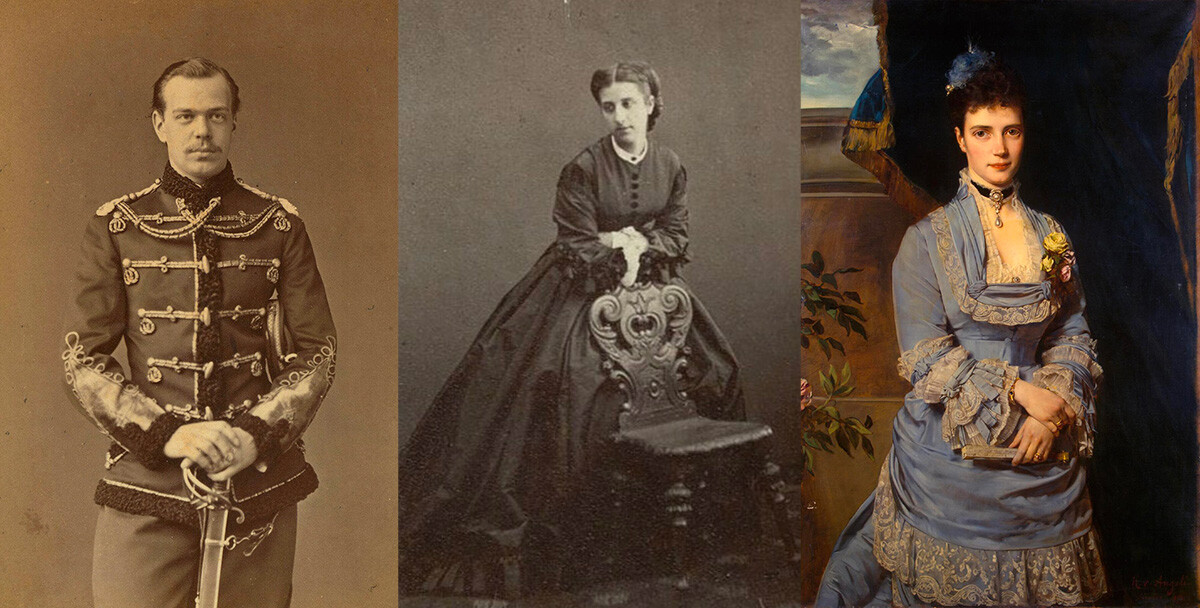
“Every night, I pray fervently to God that He would help me to give up the throne and, if possible, to arrange my happiness with sweet Dusenka. I am tormented by one thing, it is that I am very afraid for M. E. [Maria Elimovna - ed.], that when the decisive moment comes, she will refuse me and, then, everything is gone,” wrote Alexander in his diary on May 17, 1866.
Historian Alexander Bokhanov claims that the Grand Duke and Meshcherskaya did not have intimate relations. The heir did not consider such a development without marriage. “He was sincere and did not understand how one could enter into a relationship with a woman without love. And love means marriage, it means for life. Without a doubt,” wrote Bokhanov in his book titled ‘Maria Fyodorovna’. In the end, Alexander obeyed his duty, concluded a dynastic marriage with Dagmar and was a faithful husband for the rest of his life.
Before his engagement to Alice of Hesse, the granddaughter of British Queen Victoria, the last Russian emperor had a relationship with Matilda Kshesinskaya, a prima donna of the Mariinsky Theater. This episode in the life of Nicholas II gave rise to speculation that the ballerina allegedly gave birth to a son to the tsesarevich and also became the subject of Alexei Uchitel’s scandalous melodrama ‘Matilda’ (2017). The movie caused a wide public resonance, because it questioned the virtue of the sainted tsar. In particular, historian Peter Multatuli insists that the relationship with Kshesinskaya was platonic in nature.
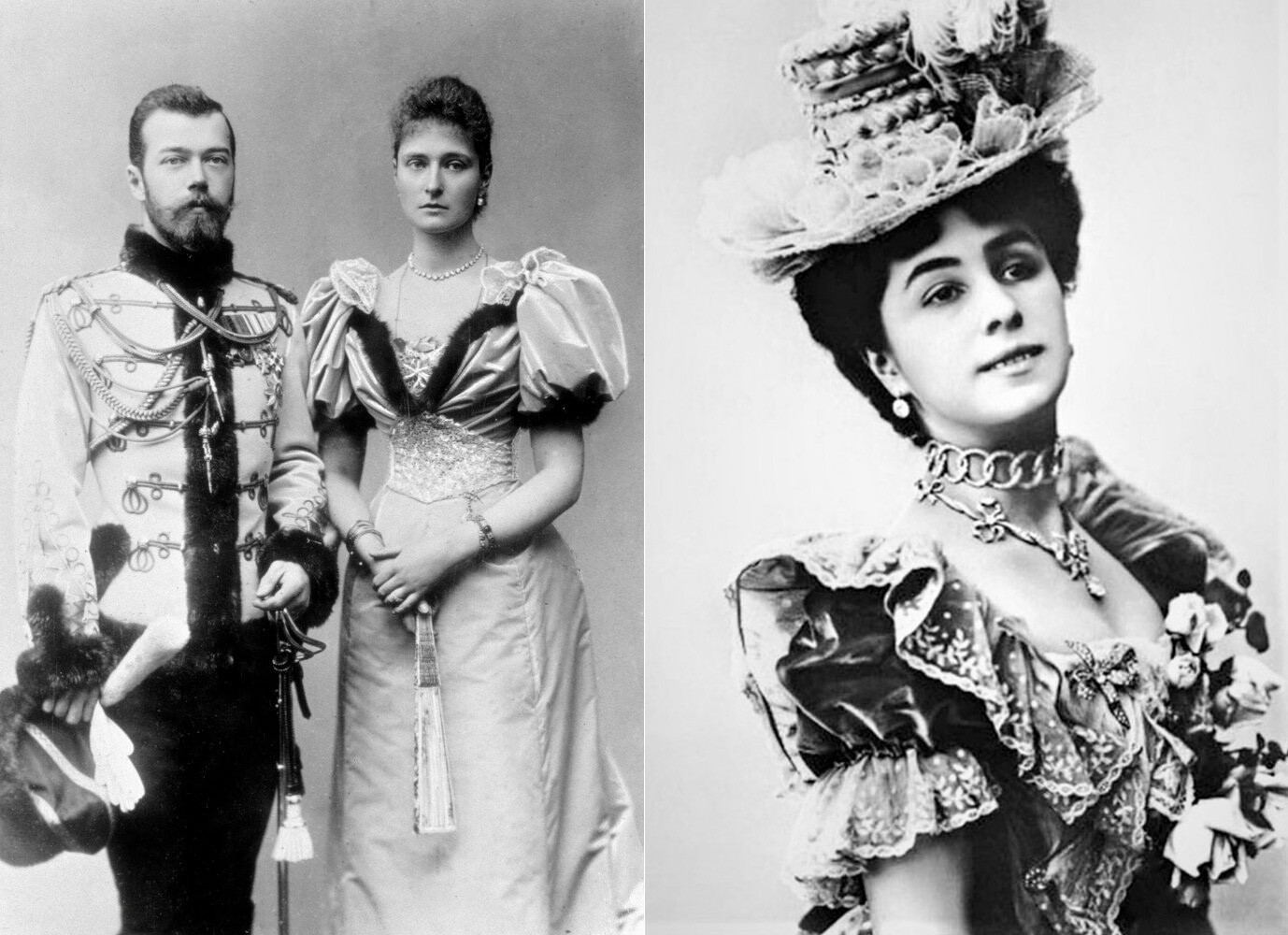
Most historians agree that, in marriage, Nicholas did not cheat. The royal couple lived soul to soul and throughout their lives celebrated the anniversary of the engagement.
Dear readers,
Our website and social media accounts are under threat of being restricted or banned, due to the current circumstances. So, to keep up with our latest content, simply do the following:
If using any of Russia Beyond's content, partly or in full, always provide an active hyperlink to the original material.
Subscribe
to our newsletter!
Get the week's best stories straight to your inbox